Advisory Board
I. Jonathan Amster, PhD

I. Jonathan Amster is a Professor and Head of the Department of Chemistry at the University of Georgia. He received a bachelor’s degree in Chemistry from Cornell University in 1977. He earned his doctoral degree at Cornell (1981-1986), where he was a member of the research group of Prof. Fred McLafferty. During this time, he began working in the field of Fourier transform mass spectrometry and its applications to bioanalysis, a theme that he has continued throughout his career. In 1987, he moved to the University of California Irvine, where he was a postdoctoral researcher in the laboratory of Prof. Robert McIver. In 1988, he joined the chemistry faculty at the University of Georgia. His present research interests include fundamental studies of ion behavior in FTICR mass spectrometers using multiparticle computer simulations of ion motion; development of analytical approaches to the structural analysis of glycosaminoglycans; high throughput sequencing of glycosaminoglycan mixtures using capillary electrophoresis mass spectrometry; gas phase structural biology for glycosaminoglycan-protein complexes using ion mobility mass spectrometry. He has authored more than 140 journal articles and book chapters in the field of mass spectrometry. He serves on the editorial board of the Journal of the American Society for Mass Spectrometry and the European Journal of Mass Spectrometry. He was elected a Fellow of the AAAS in 2010.
Pritha Bagchi, PhD
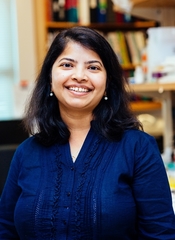
Pritha Bagchi received her Ph.D. from Georgia Institute of Technology. As a graduate student, she joined Dr. Christoph Fahrni’s lab, where her major contribution was characterization of a novel set of colorless, water soluble, air-stable Cu(I) affinity standards with varied binding affinities. After her Ph.D., Pritha worked with Dr. Melissa Kemp for a year to develop assays to selectively detect redox-sensitive proteins from cellular extracts using Redox-DIGE. She then received the ORISE fellowship and moved to CDC, where she measured urinary metabolites of volatile organic compounds (VOCs) using UPLC-MS/MS to assess national exposure levels to VOCs originating from tobacco smoke and other sources. As the Associate Director, Research Projects, she oversees the daily operations of EIPC including sample management, sample processing, data analysis and reporting. She also provides pre-consultation to clients and helps them interpreting the results. Additionally, she manages the PDBP project including the biobanking of biofluids and sample management. In 2022, Pritha was unanimously elected as the President for the Southeastern Association of Shared Resources (SEASR). Prior to that, she served as the Sponsor Coordinator for SEASR (2018-2021). She is also the Program Coordinator of the Atlanta Athens Mass Spectrometry Discussion Group (AAMSDG). Pritha is a graduate of the 2020 Aspiring Leaders at Emory program and received a Lean Six Sigma Green Belt certificate in 2022.
Facundo M. Fernandez, PhD
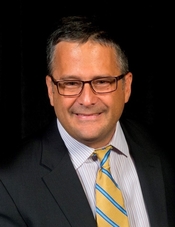
Facundo M. Fernández was born in Buenos Aires, Argentina. He received his MSc in Chemistry from the College of Exact and Natural Sciences, Buenos Aires University in 1995 and his PhD in Analytical Chemistry from the same University, in 1999. In August 2000, he joined the research group of Prof. Richard N. Zare in the Department of Chemistry at Stanford University. His work focused on several aspects of Hadamard transform time-of-flight mass spectrometry with an emphasis on coupling this technique to capillary-format separation methods. In 2002, he joined the group of Prof. Vicki Wysocki in the Department of Chemistry at the University of Arizona, to develop novel tandem mass spectrometers for gas-phase peptide ion studies. In 2004 he joined the School of Chemistry and Biochemistry at the Georgia Institute of Technology where he currently holds the position of Vasser-Woolley endowed Professor in Bioanalytical Chemistry. He is the author of over 175 peer-reviewed publications and numerous invited presentations at international conferences. He has received several awards, including the NSF CAREER award, the CETL/BP Teaching award, the Ron A. Hites best paper award from the American Society for Mass Spectrometry, and the Beynon award from Rapid Communications in Mass Spectrometry, among others. He serves on the editorial board of the Journal of the American Society for Mass Spectrometry (JASMS) and The Analyst, and in 2020 he started serving as an Associate editor for JASMS. His current research interests include the field of metabolomics and the development of new ionization methods and ion mobility tools for probing composition and structure in complex molecular mixtures.
Kelly M. Hines, PhD
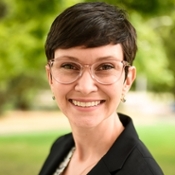
Kelly Hines graduated from the University of Florida with a B.S. in Chemistry and completed her Ph.D. at Vanderbilt University with Prof. John A. McLean. During her graduate work, Dr. Hines developed ion mobility-mass spectrometry (IM-MS) methods for the identification of metabolite, lipid, and peptide biomolecular signatures of disease from complex biological samples. After receiving her Ph.D. in 2014, Dr. Hines completed a one-year postdoctoral fellowship in the Mayo Clinic Regional Metabolomics Core where she established quantitative MS methods for lipidomics and protein metabolism using isotope labeling. In 2015, Dr. Hines joined the lab of Prof. Libin Xu at the University of Washington School of Pharmacy. Her work in the Xu Lab focused on the development of IM-MS methods for lipidomics and the significance of lipids in human diseases, environmental exposure and antibiotic resistance. Dr. Hines was award a U.S. Pharmacopoeia Global Fellowship in 2015 for her work to develop a high-throughput IM-MS approach for the characterization of 2,000 drugs and small molecules. In August 2019, Dr. Hines joined the University of Georgia Department of Chemistry as an Assistant Professor. The Hines Lab is developing high-throughput IM-MS platforms to analyze the molecular underpinnings of diseases and other health concerns, including antibiotic resistance.
Ron Orlando, PhD
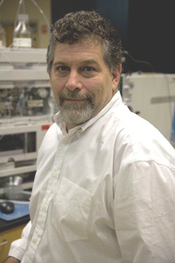
Ron Orlando received his B.S. in natural science in 1983 from St. Mary's College of Maryland and his Ph.D. in analytical chemistry in 1988 from the University of Delaware. He joined the CCRC in January 1993. He heads the CCRC's mass spectrometry facility and was named a "Leader of Tomorrow" in 1995 by the journal Spectroscopy. In 1996 he was invited by the journal Analytical Chemistry to review the MS calculator Softshell. He has two U.S. patent applications pending. Dr. Orlando is a frequently invited seminar speaker at international colloquia and at research institutes, academic departments, and industrial organizations around the world. He was invited by the ACS Divisions of Analytical and Carbohydrate Chemistry to organize a session entitled, "Advances in Mass Spectrometry of Carbohydrates" at the 211th National Meeting of the American Chemical Society in March 1996 and chaired a session entitled, "Mass Spectrometry in the 21st Century" at the SUNBOR 50th Anniversary Symposium in Osaka, Japan, in June 1996.
Nicholas T. Seyfried, PhD
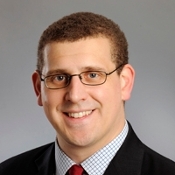
Nicholas T. Seyfried is a Professor in the Departments of Biochemistry and Neurology at Emory University School of Medicine and the Scientific Director of the Emory Integrated Proteomics Core. He received his D.Phil in Biochemistry at the University of Oxford and training in mass spectrometry and proteomics at the University of Georgia and Emory University. His research focuses on the integration of proteomics, transcriptomics, and systems biology to tackle fundamental questions related to the pathogenesis of Alzheimer’s Disease (AD) and other neurodegenerative disorders. His team utilizes both label-free and isobaric Tandem Mass Tag (TMT) quantitative mass spectrometry to identify and quantify proteins and post-translational modifications in human brain, plasma, and cerebrospinal fluid. As part of the Accelerating Medicines Partnership for Alzheimer's Disease (AMP-AD) consortium, Dr. Seyfried and his team leverage the strengths of a national team of collaborating investigators to nominate new drug targets and biomarkers for AD.
Matthew Torres, PhD
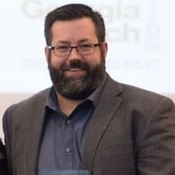
Matthew Torres is a former Tar Heel from UNC Chapel Hill. His research is centered on protein post-translational modifications (PTMs) – a ubiquitous category of biomolecules involved in every aspect of cell biology from cell division to signal transduction. Over the last 14 years he has established a broad publication record ranging from mass spectrometry method development to in vitro biochemistry and the dissection of molecular mechanisms in vivo. Currently, his lab integrates quantitative mass spectrometry with computational biology, cell biology and biochemistry to understand how signaling proteins are regulated by PTMs including phosphorylation, ubiquitination and acetylation. Towards this goal, his lab has developed and applied novel computational tools for the prediction of functional PTM from mass spectrometry data, which his lab has exploited to identify novel regulatory elements in well-characterized G protein signaling pathways involved in disease and disease therapy.
Ronghu Wu, PhD
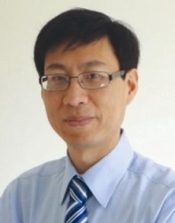
Ronghu Wu is an associate professor in the School of Chemistry and Biochemistry at Georgia Tech. His group is developing innovative mass spectrometry (MS)-based methods for characterizing protein modifications, especially glycosylation, and applying them for biomedical research. Novel and effective methods will advance our understanding of glycoprotein functions and disease mechanisms, leading to the identification of glycoproteins as effective biomarkers and drug targets. He was a recipient of the Blanchard Assistant Professorship in 2014, the NSF CAREER Award in 2015, and the American Society for Mass Spectrometry (ASMS) Research Award in 2016.
